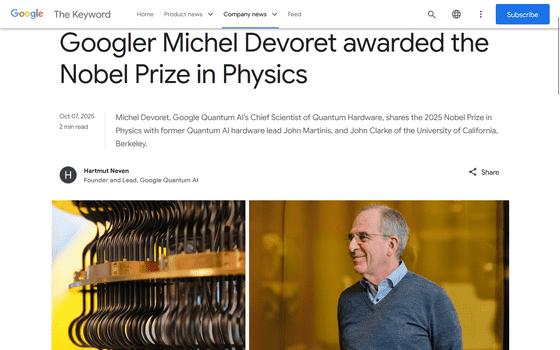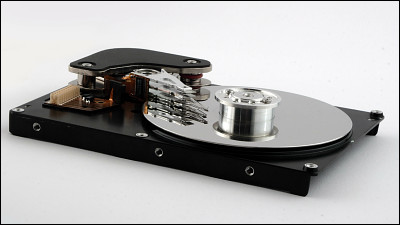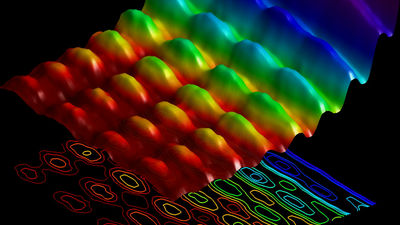Google Chief Scientist Michel Devoret, former Googlers John Martinis and John Clarke win Nobel Prize in Physics for their work on quantum computing

Three physicists have been awarded the 2025 Nobel Prize in Physics for their work in quantum mechanics in the 1980s. Two of them were associated with Google, and the company has offered its congratulations.
Google Quantum AI team member, alum win the Nobel Prize

Announcement of the 2025 Nobel Prize in Physics - YouTube
Nobel Prize in Physics goes to early research that led to today's quantum computers | The Verge
https://www.theverge.com/news/795295/nobel-prize-physics-quantum-computers
Physicists John Clark, Michel Devoret, and John Martinis have created a circuit with zero electrical resistance and demonstrated that they can observe a phenomenon known as 'tunneling,' in which atoms and elementary particles can pass through barriers that would normally be impassable, even on a macroscale visible to the human eye.
Brian Josephson , winner of the Nobel Prize in Physics in 1973, proposed the 'Josephson junction,' a device consisting of two superconductors sandwiching a thin insulating layer, through which superconducting electron pairs (Cooper pairs) tunnel. This was merely a theoretical prediction, but it has since been experimentally verified. Clark and his colleagues observed electron tunneling in an electronic circuit containing a Josephson junction, demonstrating that mysterious phenomena that occur only in the microscopic world of quantum matter can also be realized in the macroscopic world, where they can be observed by the human eye. The circuit used in the experiment became the prototype for the superconducting quantum interference device (SQUID), which led to the birth of quantum computing's core technology.
After earning his PhD from Cambridge University, Clark went to the University of California, Berkeley, as a postdoctoral fellow and joined the faculty in 1969. Devoret and Martinis joined Clark's lab in the mid-1980s as a postdoctoral fellow and graduate student, respectively.
Martinis and Devoret later began researching quantum computing at Google, and in 2019, the Google Quantum AI team announced their development of a computer with 'quantum supremacy,' capable of solving problems far faster than the fastest supercomputers. Martinis has retired from his position at Google and is a professor at Yale University and the University of California, Santa Barbara. Devoret is the chief scientist for quantum hardware at Google Quantum AI and also a professor at the University of California, Santa Barbara.
Google said, 'This award recognizes their research into macroscopic quantum effects, which laid the foundation for modern superconducting qubit-based quantum computing. It celebrates a series of meticulous experiments conducted in the 1980s that have had a revolutionary impact on physics and technology. The Quantum AI team is incredibly proud to recognize Michelle and John's pioneering work.'
Google has produced a total of five Nobel Prize winners in the past two years.
The five Nobel laureates include current Googlers:
— Google (@Google) October 7, 2025
-Demis Hassabis (Chemistry, 2024)
-John Jumper (Chemistry, 2024)
-Michel Devoret (Physics, 2025)
And Google alums:
-Geoff Hinton (Physics, 2024)
-John Martinis (Physics, 2025)
Congratulations!
Related Posts:
in Posted by log1p_kr






